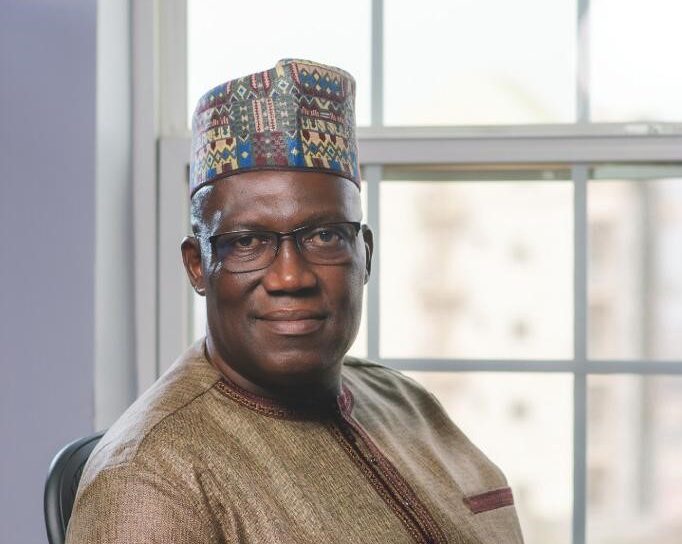By Kenneth Kwamina THOMPSON
Since 2017, the Cedi has taken a staggering nosedive of 246percent against the dollar. It’s like watching a beloved football team slide down the league table – painful and inexplicable. Any attempt to manipulate supply and demand artificially to support the Cedi/US$ exchange rate will not just fail; it will exacerbate the problem. These attempts may even cause the Cedi to depreciate further. It’s clear that we need more effective measures to stabilize the currency, and we need them now.
A statement signed by the president of GUTA (the Ghana Union of Traders Association), Dr Joseph Obeng, said, “… the Cedi’s depreciation has created a big mess for the business community …”. The union has described the current situation as a crisis. But it’s not just businesses that are suffering.
The cost of living is skyrocketing, and people’s spending power is plummeting. Every day, Ghanaians feel the pinch, having to make do with less money in their pockets. Less money in the pocket means less spending on everything from food to children’s school fees. This increase in the cost of living has been caused by the high rate of Cedi depreciation, high inflation, high electricity and water tariffs, high interest rates, and high taxes.
Last month, according to the Bank of Ghana (BoG), “.the BoG remains fully committed to providing stability in the exchange rate for the Cedi. The Bank has enough foreign exchange reserves to support the market, and economic agents should stop engaging in speculative purchases as they will suffer economic losses when the correction occurs”.
The Bank also announced the establishment of a task force to oversee all foreign exchange bureaus and ensure they comply with regulatory standards. This task force’s primary goal is to address illegal operators’ activities in the foreign exchange market and enhance market transparency.
Contrary to what the BoG labels as speculative behavior, individuals and businesses are actually making rational decisions. Investing in foreign currencies, gold, or other precious metals in high-inflation environments is a prudent strategy to safeguard wealth, preserve purchasing power, and diversify investments. The allegations about the activities of ‘illegal’ forex traders are a diversion. It’s illogical to blame small-time currency traders for the Cedi’s depreciation.
The BoG and the Government of Ghana’s (GoG’s) consistent failure to deliver on their policy promises has undermined public trust, forcing even humble traders like the local Koko seller to scramble for scarce dollars. As the Cedi’s value plummets, the prices of everyday essentials like ‘pure water’ skyrocket, making life even harder for ordinary Ghanaians. The BoG speaks, but its words ring hollow. Despite its policy tweaks and assurances, the Cedi’s woes continue.
There is also information in the public domain, fueling Cedi speculation, which the BoG is not addressing. The harsh truth is that the GoG’s borrowing spree has blown up in its face, shutting it out of international capital markets. The same markets that once propped up the Cedi with dollar injections now slam their doors shut, leaving the currency to plummet.
In their recent statement, the BoG admits that business sentiment is low, inflation is high, and disinflation is not working. They also admit to missing all targets but claim the targets they were reporting are broadly aligned with targets agreed upon under the IMF programme.
The BoG must confront its role in fueling inflation. Its 2022 financial statements reveal a staggering GH¢60 billion loss, with GH¢53.1 billion attributed to the GoG’s debt restructuring. The BoG lent money to the GoG, citing economic stability, but this move only exacerbated inflation, Cedi depreciation, and economic woes. The BoG’s actions contradict its mandate, especially in an import-dependent economy like Ghana. Instead of enabling the GoG’s fiscal objectives, the BoG should have encouraged responsible spending. Now, it’s attempting to correct its mistake with open market operations. The BoG can, and must, do better to achieve economic stability.
Ghana’s economy is trapped in a vicious cycle of exporting raw materials and importing finished goods, even for products we can produce locally like maize, rice, poultry, and fish. This excessive reliance on imports creates a staggering demand for foreign currency, draining our resources. Shockingly, over 70percent of containers arriving with finished goods depart empty, equivalent to exporting nothing but ‘air’. While politicians tout occasional trade surpluses as successes, the reality is that these surpluses are mere paper victories, as the value of our exports repatriated to Ghana is negligible.
The depreciation of Ghana’s currency should, in theory, boost exports by making them cheaper. However, despite numerous government initiatives and programmes (PFJ, IDIF, 1W1C, etc.), Ghana’s export capacity remains woefully inadequate, leaving the country heavily reliant on imports. The BoG can only use its limited foreign exchange reserves to prop up the Cedi, but it cannot generate new dollars. The BoG is essentially limited to ‘making the most of what it has’, rather than creating new growth opportunities.
No rational business owner or currency trader in ‘Cow Lane’ will ‘hoard’ US dollars, as they lack the resources to do so. Instead of harassing small-time traders and making empty promises, the BoG and GoG must confront the harsh reality of Ghana’s weak economic fundamentals, which drive the Cedi’s depreciation.
With sufficient foreign reserves, businesses can operate with clarity and confidence, unencumbered by the uncertainty that fuels instability. It’s time to face the brutal facts and address the root causes of the Cedi’s weakness. By failing to do so, the BoG and GoG fuel speculation, encourage risky behavior, and create market chaos, leading to unrealistic price swings and a never-ending cycle of instability that ensnares everyone.










